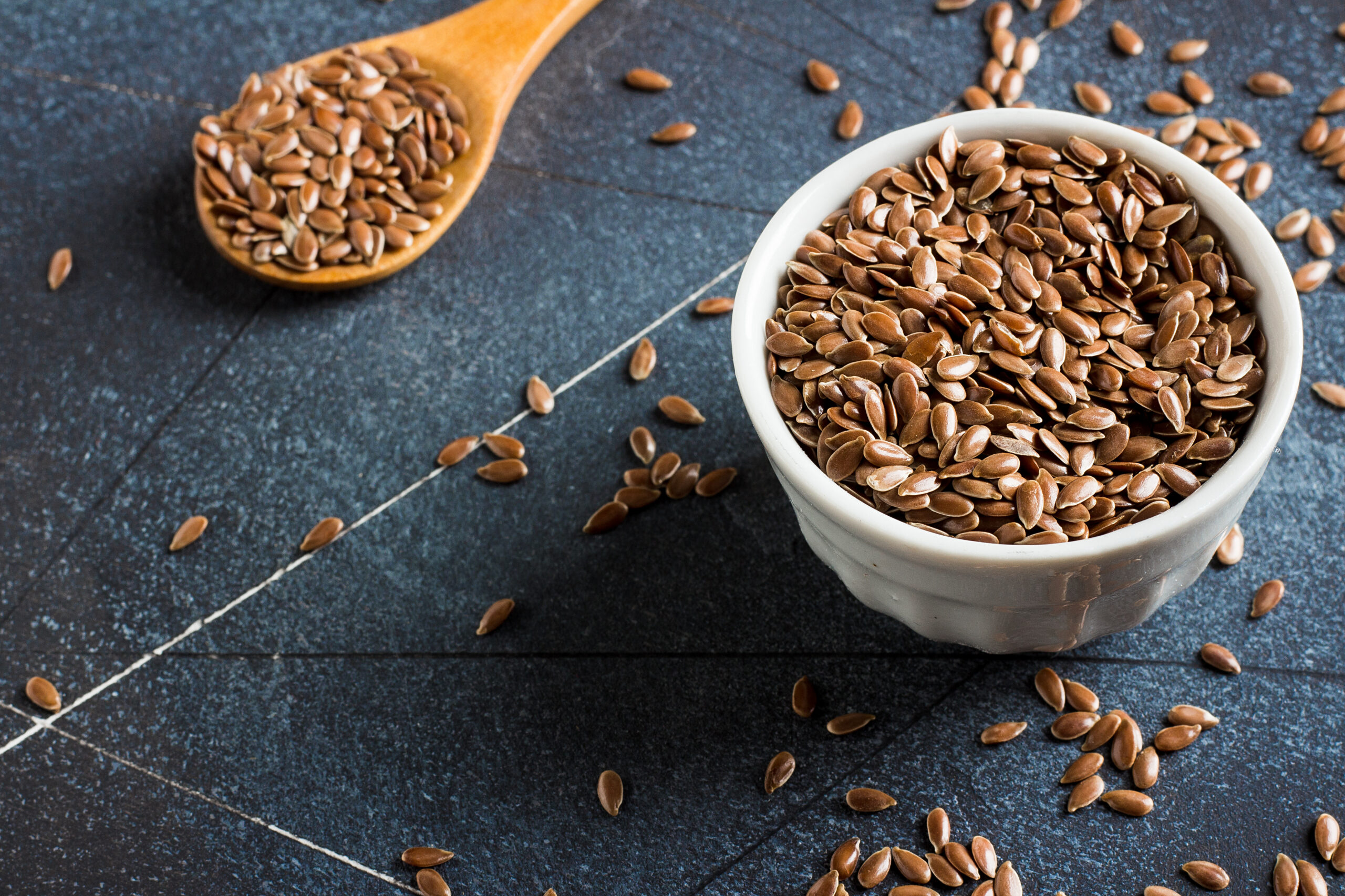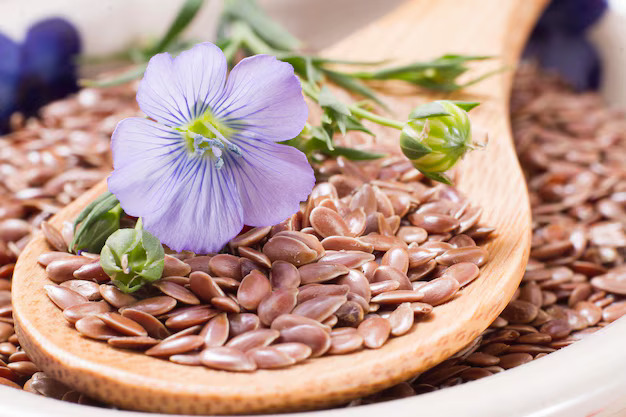10 Incredible Flaxseed Benefits
Flaxseeds—also known as linseeds—are tiny nutritional powerhouses that have earned their place in the world of superfoods. With roots tracing back thousands of years, flaxseed has long been used for its healing, digestive, and cardiovascular benefits.
As modern research continues to uncover the numerous health advantages associated with this humble seed, it’s no wonder flaxseed has become a staple in wellness circles.
Whether you’re an athlete, a busy professional, or someone simply looking to improve your health, understanding the 10 incredible flaxseed benefits could help you unlock new levels of well-being.

What is Flaxseed?
Flaxseed comes from the flax plant (Linum usitatissimum), which is grown in temperate climates around the world. These small, flat, oval seeds are typically golden or brown and are consumed in whole seed, ground (milled), or oil form.
They’re rich in fiber, omega-3 fatty acids, and plant compounds like lignans—each of which offers unique health benefits.
Now, let’s dive into the 10 incredible flaxseed benefits and see how incorporating this superfood into your diet can make a significant difference.
1. Rich Source of Omega-3 Fatty Acids
Flaxseeds are among the richest plant-based sources of alpha-linolenic acid (ALA), an essential omega-3 fatty acid. Omega-3s are crucial for heart and brain health, and while oily fish are typically touted for these benefits, flaxseed offers a vegan-friendly alternative.
Benefits of Omega-3s from Flaxseed:
- Supports heart health by reducing inflammation.
- May lower blood pressure and cholesterol levels.
- Promotes brain function and mental clarity.
- Helps maintain cell membrane integrity.
If you’re following a vegetarian or vegan diet, flaxseed is an excellent way to meet your omega-3 needs naturally.
2. High in Dietary Fiber for Digestive Health
One tablespoon of ground flaxseed contains about 2 grams of fiber. This includes both soluble and insoluble fiber, which work together to:
- Regulate bowel movements.
- Feed beneficial gut bacteria.
- Reduce digestive discomfort such as bloating and constipation.
How it works:
Soluble fiber forms a gel-like substance in your gut that slows digestion, helps control blood sugar, and reduces cholesterol. Insoluble fiber adds bulk to stool and helps waste pass through your system more efficiently.
3. Supports Heart Health
Numerous studies have shown that regular consumption of flaxseed can lead to improved cardiovascular health. This is thanks to a combination of its omega-3 content, fiber, and antioxidant-rich lignans.
Heart Benefits:
- Reduces LDL (bad cholesterol).
- Helps lower blood pressure.
- Improves arterial function.
- Prevents plaque buildup in arteries.
According to the American Heart Association, dietary fiber and healthy fats like ALA are key factors in lowering the risk of heart disease—flaxseed offers both.
4. Packed with Antioxidants (Lignans)
Flaxseed contains up to 800 times more lignans than other plant-based foods. Lignans are phytochemicals with powerful antioxidant and estrogenic properties.
Why Antioxidants Matter:
- Protect cells from oxidative stress and free radicals.
- Reduce the risk of cancer, especially breast and prostate.
- Support hormone balance in both men and women.
These antioxidant properties are especially valuable in today’s world, where oxidative stress from poor diets, pollution, and stress is rampant.
5. Aids in Weight Management
Flaxseeds are a dieter’s best friend. Due to their high fiber and healthy fat content, they create a sense of fullness and reduce cravings.
How Flaxseed Helps with Weight Loss:
- Increases satiety, reducing overall calorie intake.
- Stabilizes blood sugar, preventing insulin spikes and crashes.
- Boosts metabolism due to its healthy fat profile.
Adding a tablespoon of ground flaxseed to your smoothie, oatmeal, or yogurt can curb hunger and help you stick to a healthy eating plan.
6. May Lower Cancer Risk
Emerging research suggests flaxseed may play a role in preventing several types of cancers, particularly breast, prostate, and colon cancers.
Why?
- The lignans in flaxseed mimic estrogen and can bind to estrogen receptors, potentially reducing hormone-related cancer risks.
- Flaxseed’s antioxidant properties protect DNA from mutation.
- Fiber promotes colon health and regular detoxification.
While flaxseed isn’t a magic bullet, incorporating it into a balanced diet can be a supportive measure in cancer prevention strategies.
7. Stabilizes Blood Sugar Levels
Flaxseed may be beneficial for individuals with type 2 diabetes or those at risk of developing it. Its fiber content slows glucose absorption, helping stabilize blood sugar levels.
Benefits for Blood Sugar:
- Reduces insulin resistance.
- Improves glycemic control.
- Helps prevent energy crashes after meals.
Consuming flaxseed regularly can lead to more stable energy levels and fewer sugar cravings throughout the day.
8. Improves Skin and Hair Health
Looking for natural ways to boost your glow? The healthy fats and antioxidants in flaxseed support the health and appearance of your skin and hair.
Skin & Hair Benefits:
- Omega-3s keep the skin hydrated and supple.
- Antioxidants help fight premature aging.
- Anti-inflammatory properties can help with acne and eczema.
- Promotes strong, shiny hair growth.
Some people even apply flaxseed oil topically, although consuming it regularly often yields better long-term results.
9. Supports Hormonal Balance
Flaxseed can help regulate hormonal fluctuations, especially in women. The lignans mimic weak estrogens and may ease menopausal symptoms like hot flashes and mood swings.
Benefits for Hormonal Health:
- May reduce PMS symptoms.
- Supports estrogen balance during menopause.
- Can promote reproductive health.
For women experiencing hormonal imbalances, flaxseed can be a gentle, natural ally.
10. Boosts Athletic Performance and Recovery
Flaxseed isn’t just for the health-conscious—it’s also great for athletes and active individuals. Its nutrients support energy production, muscle function, and recovery.
Athletic Benefits:
- Omega-3s reduce muscle inflammation post-exercise.
- Protein content supports muscle repair and growth.
- Antioxidants help speed recovery.
Adding flaxseed to a post-workout smoothie can improve muscle recovery and reduce soreness.
How to Incorporate Flaxseed Into Your Diet
To enjoy these incredible flaxseed benefits, consistency is key. Here are simple ways to include flaxseed in your daily routine:
- Ground flaxseed: Add to smoothies, yogurt, oatmeal, or baked goods.
- Flaxseed oil: Use as a salad dressing or drizzle over roasted vegetables.
- Whole seeds: Sprinkle over cereals or salads (note: must be chewed well or ground for full benefits).
🔑 Tip: Ground flaxseed is easier to digest and offers better nutrient absorption than whole seeds.
How Much Flaxseed Should You Eat?
A common recommendation is 1–2 tablespoons of ground flaxseed daily, which provides a healthy amount of fiber, omega-3s, and antioxidants. As with any dietary change, start small and increase gradually to avoid digestive discomfort.

Potential Side Effects and Considerations
While flaxseed is generally safe, there are a few things to consider:
- Drink plenty of water to aid digestion.
- Consult your doctor if you’re on blood thinners or hormone-sensitive medications.
- Store flaxseed in an airtight container in the refrigerator to prevent rancidity.
Final Thoughts
Flaxseed is a small seed with massive potential. From improving heart health and aiding digestion to supporting hormonal balance and enhancing skin health, the 10 incredible flaxseed benefits are hard to ignore.
Whether you’re looking to improve your overall wellness or fine-tune your athletic performance, flaxseed is a simple, affordable, and natural addition to your lifestyle.
If you haven’t yet incorporated flaxseed into your diet, now is the perfect time to start. At www.sportandmedicalsciences.org, we’re committed to helping you make informed, science-backed decisions about your health—and flaxseed is definitely worth the hype.
References
- https://www.ncbi.nlm.nih.gov/pmc/articles/PMC6566799/
- https://www.healthline.com/nutrition/benefits-of-flaxseeds
- https://www.hsph.harvard.edu/nutritionsource/food-features/flaxseed/
- https://pubmed.ncbi.nlm.nih.gov/24361473/
- https://www.mayoclinic.org/drugs-supplements-flaxseed/art-20366457
- https://www.heart.org/en/news/2019/05/30/how-flaxseed-helps-your-heart
- https://www.webmd.com/diet/health-benefits-flaxseed